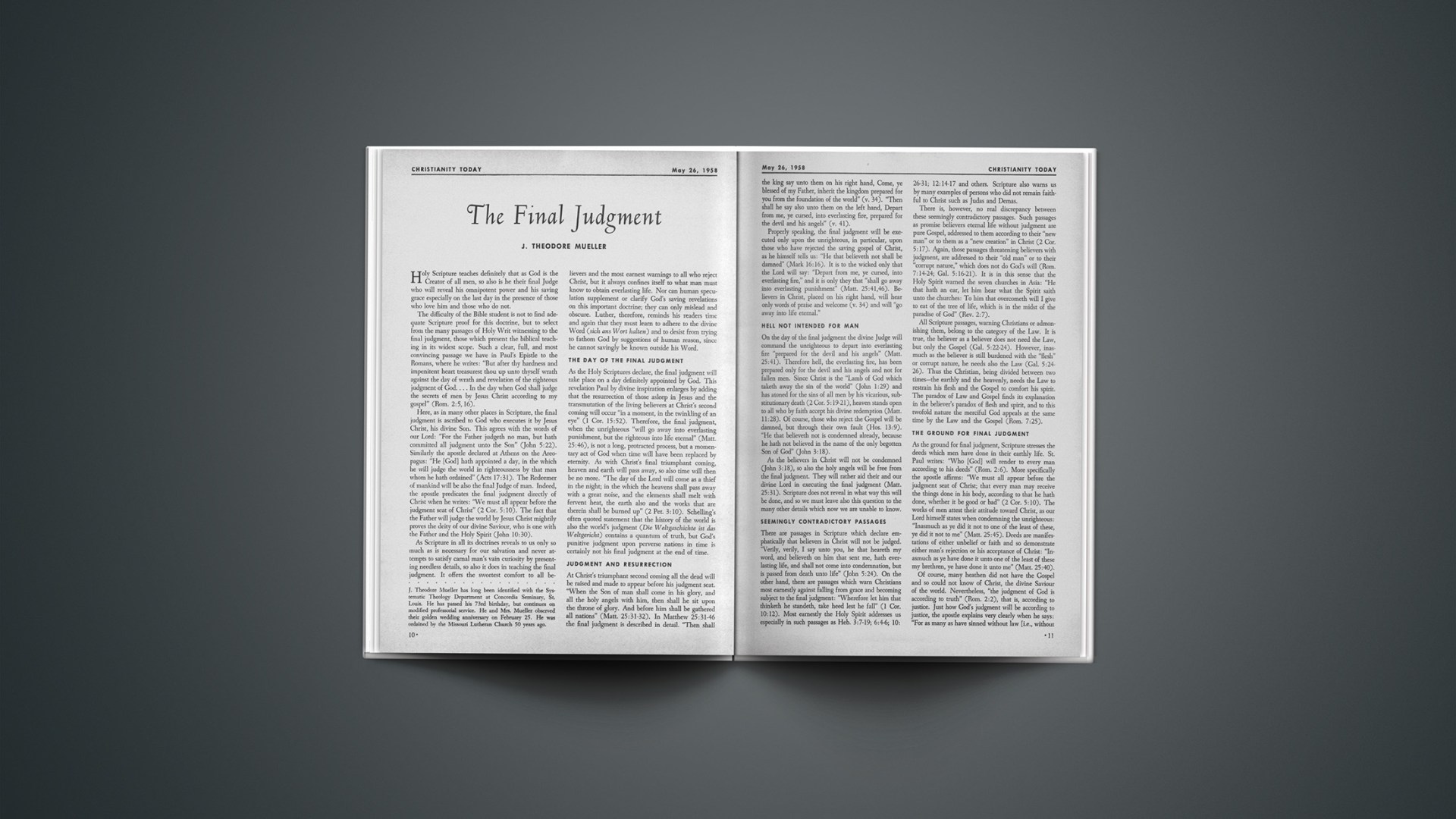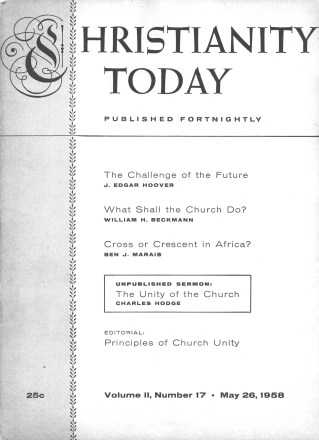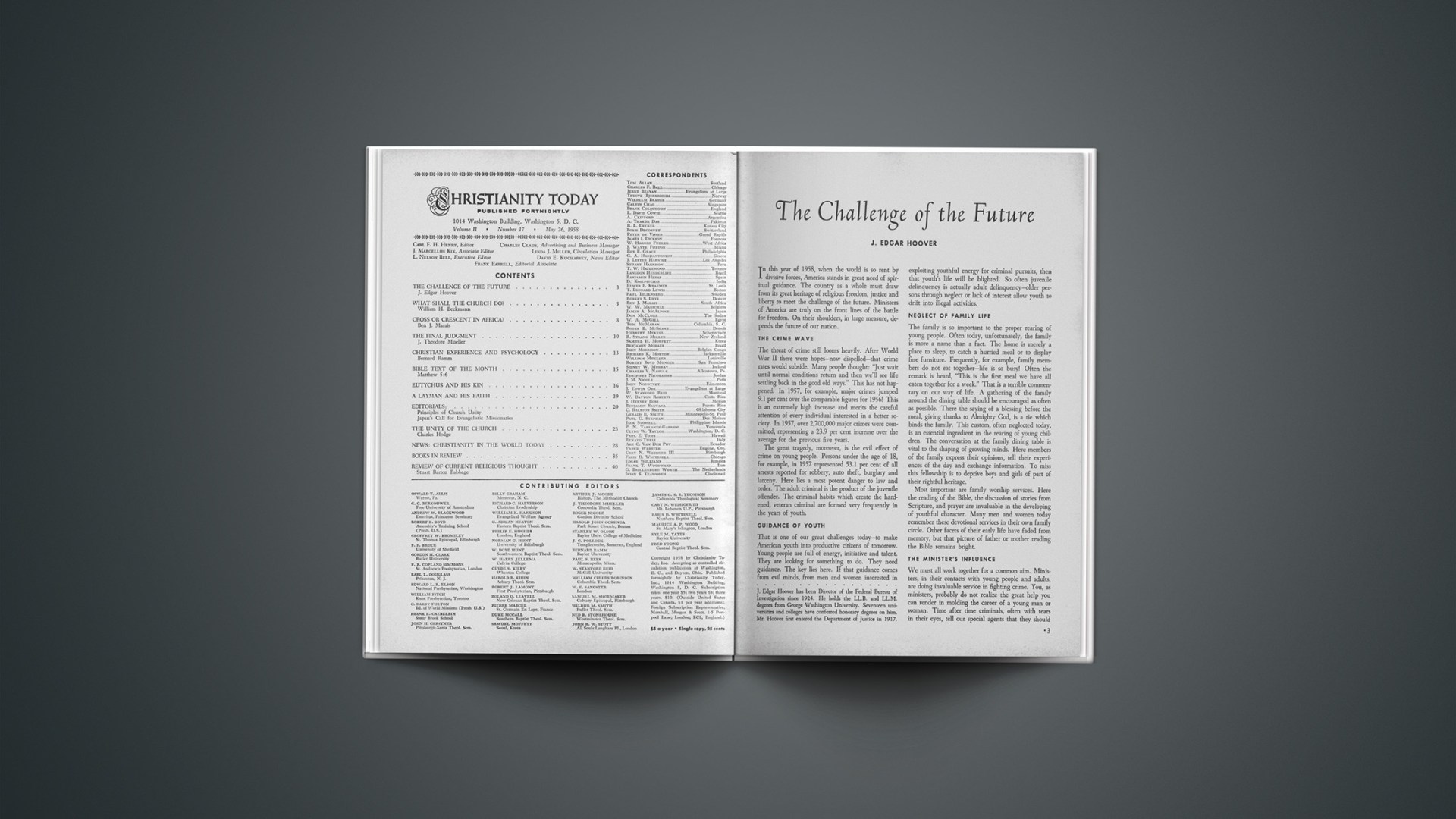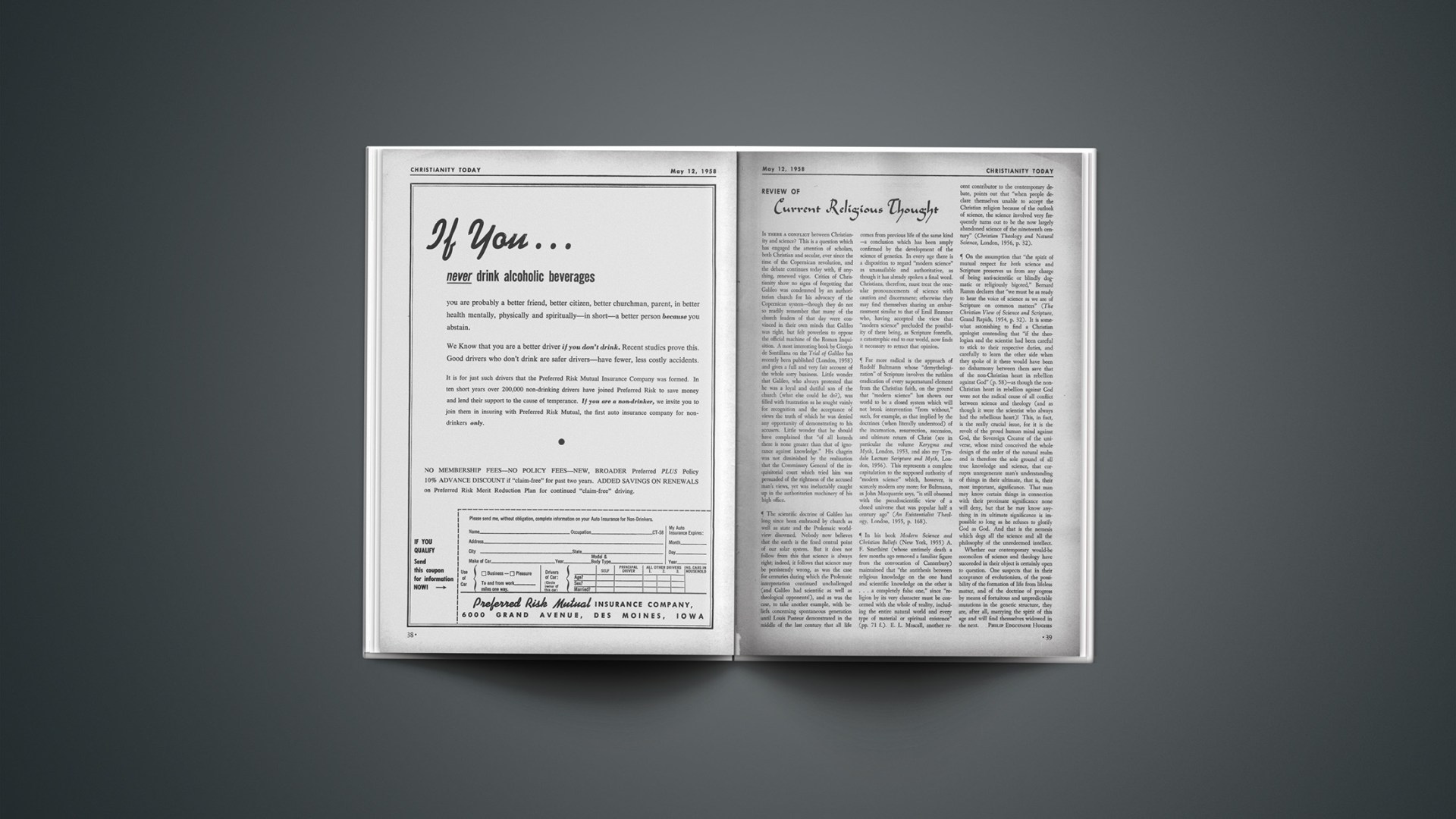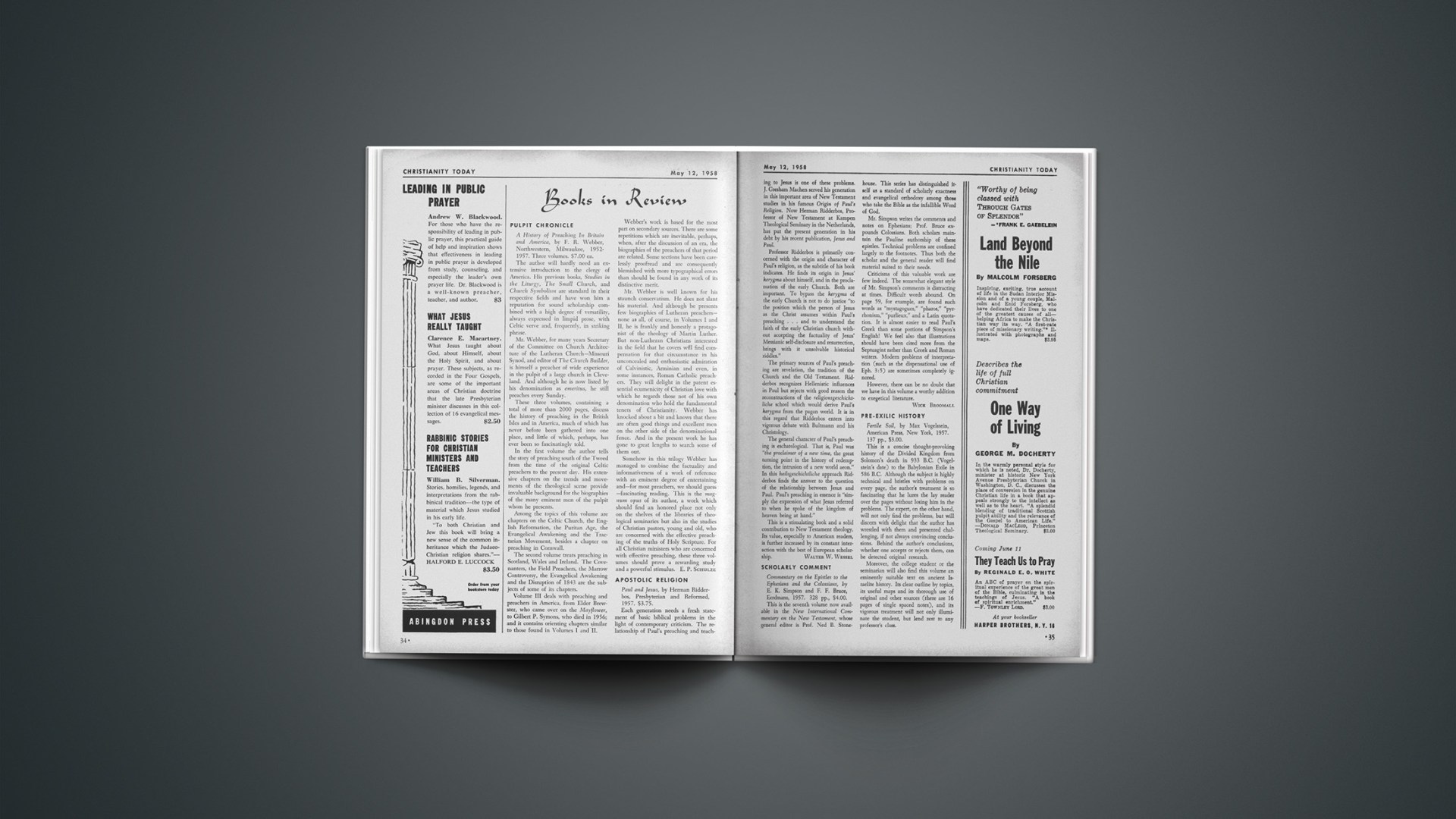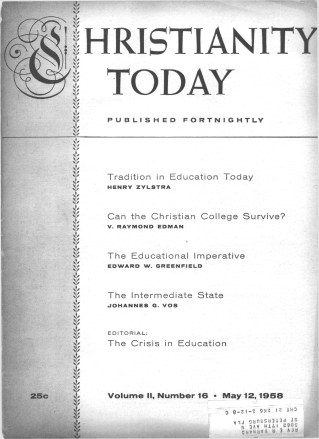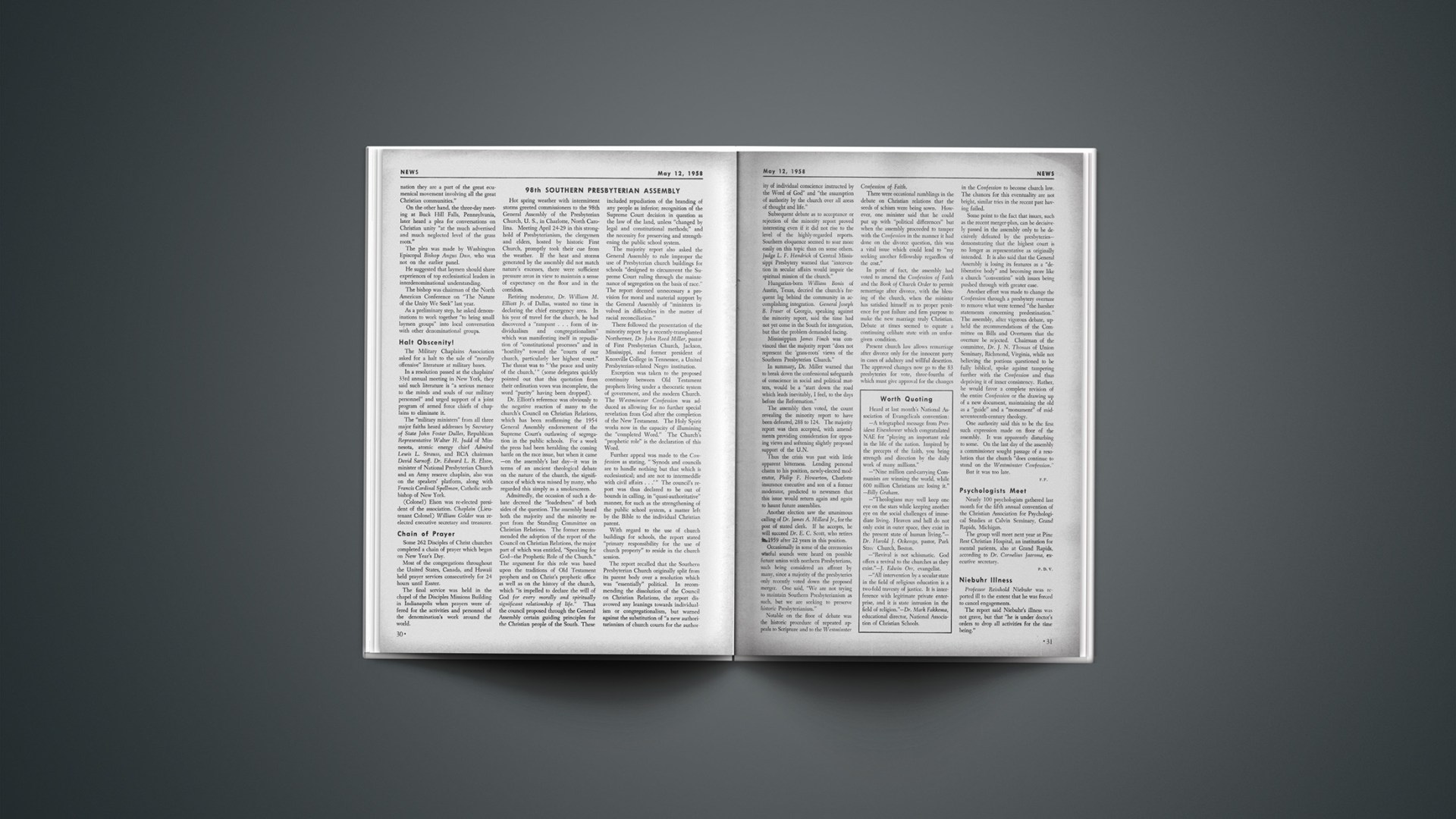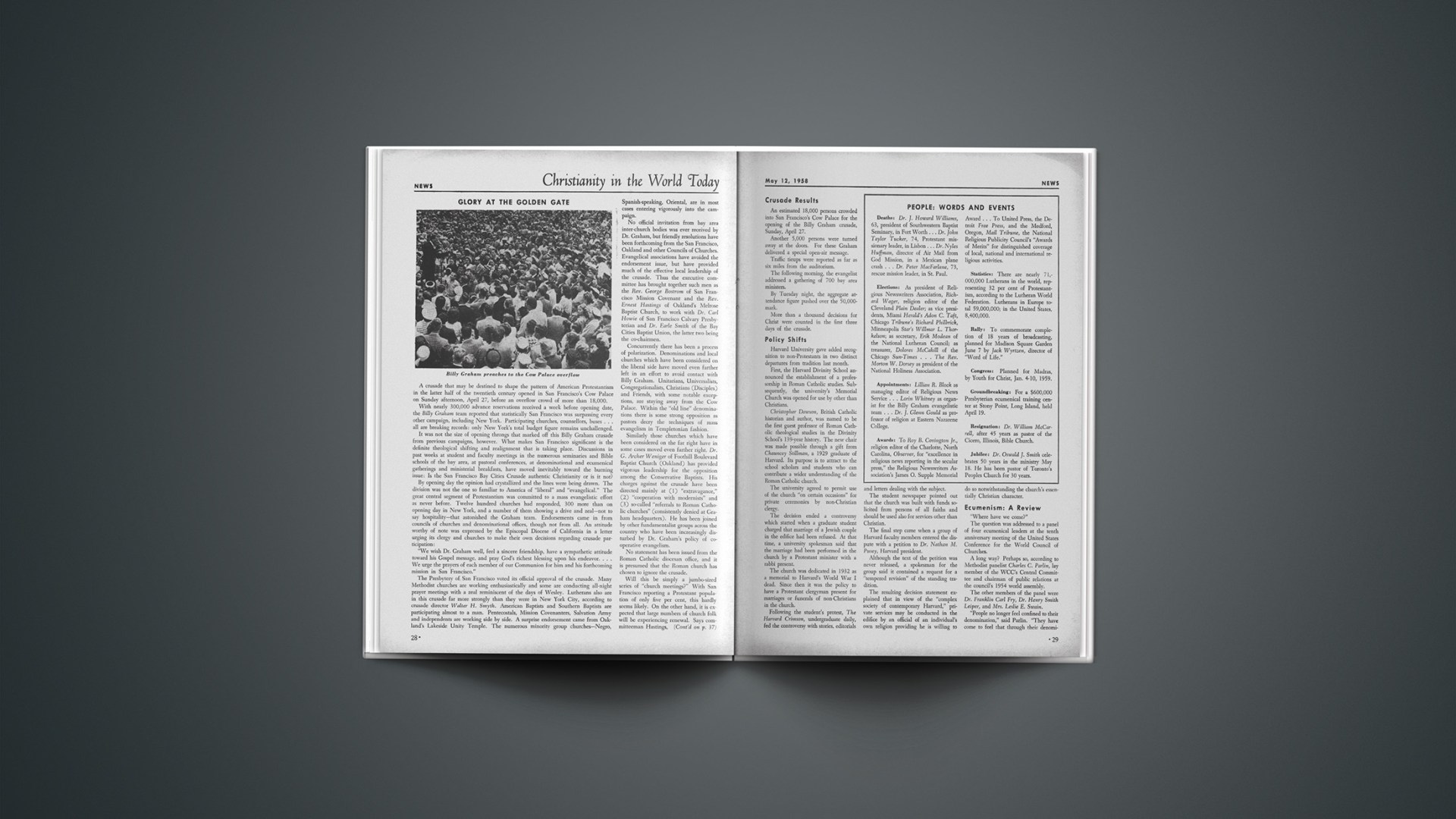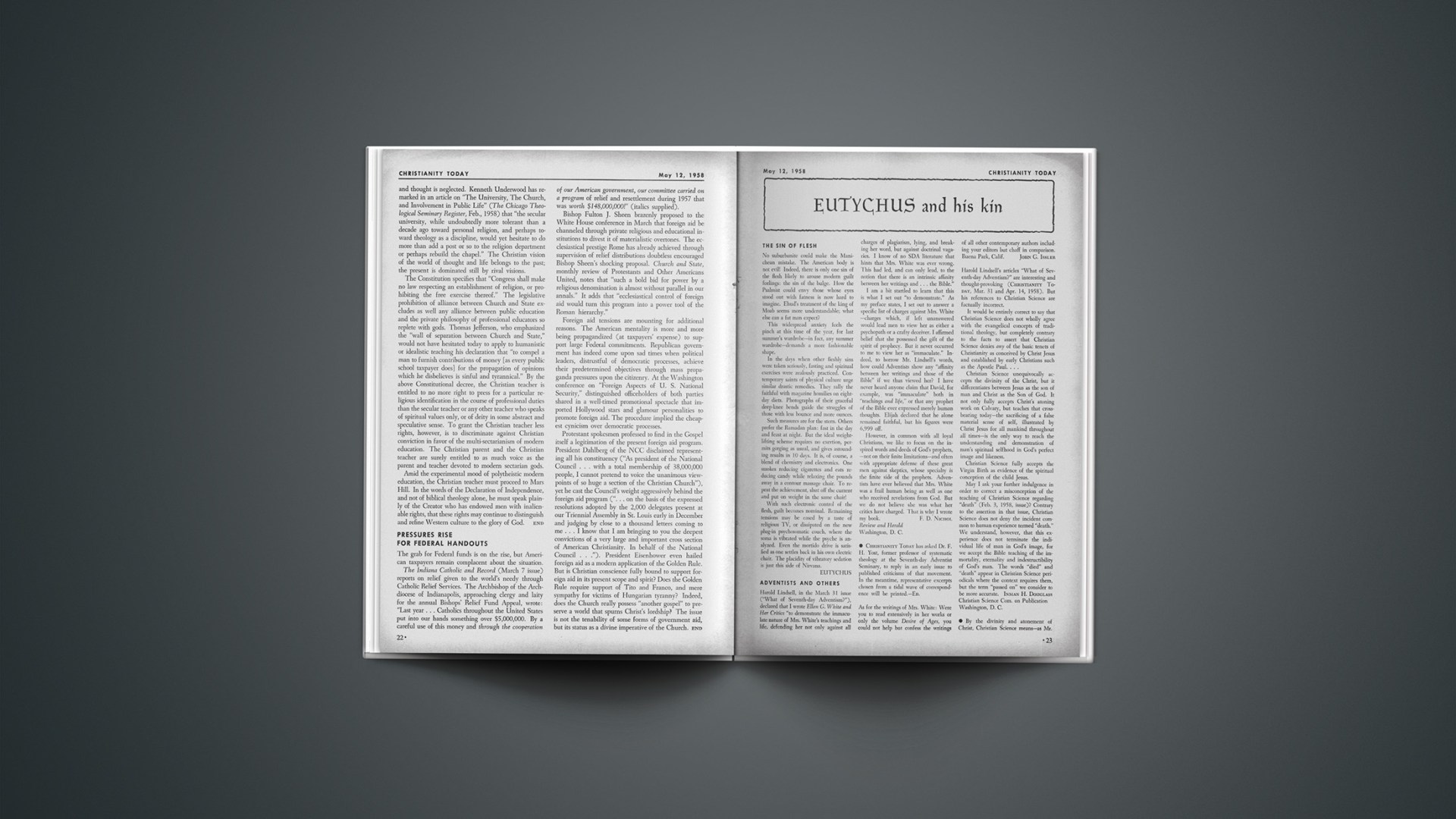Holy Scripture teaches definitely that as God is the Creator of all men, so also is he their final Judge who will reveal his omnipotent power and his saving grace especially on the last day in the presence of those who love him and those who do not.
The difficulty of the Bible student is not to find adequate Scripture proof for this doctrine, but to select from the many passages of Holy Writ witnessing to the final judgment, those which present the biblical teaching in its widest scope. Such a clear, full, and most convincing passage we have in Paul’s Epistle to the Romans, where he writes: “But after thy hardness and impenitent heart treasurest thou up unto thyself wrath against the day of wrath and revelation of the righteous judgment of God.… In the day when God shall judge the secrets of men by Jesus Christ according to my gospel” (Rom. 2:5, 16).
Here, as in many other places in Scripture, the final judgment is ascribed to God who executes it by Jesus Christ, his divine Son. This agrees with the words of our Lord: “For the Father judgeth no man, but hath committed all judgment unto the Son” (John 5:22). Similarly the apostle declared at Athens on the Areopagus: “He [God] hath appointed a day, in the which he will judge the world in righteousness by that man whom he hath ordained” (Acts 17:31). The Redeemer of mankind will be also the final Judge of man. Indeed, the apostle predicates the final judgment directly of Christ when he writes: “We must all appear before the judgment seat of Christ” (2 Cor. 5:10). The fact that the Father will judge the world by Jesus Christ mightily proves the deity of our divine Saviour, who is one with the Father and the Holy Spirit (John 10:30).
As Scripture in all its doctrines reveals to us only so much as is necessary for our salvation and never attempts to satisfy carnal man’s vain curiosity by presenting needless details, so also it does in teaching the final judgment. It offers the sweetest comfort to all believers and the most earnest warnings to all who reject Christ, but it always confines itself to what man must know to obtain everlasting life. Nor can human speculation supplement or clarify God’s saving revelations on this important doctrine; they can only mislead and obscure. Luther, therefore, reminds his readers time and again that they must learn to adhere to the divine Word (sich ans Wort halten) and to desist from trying to fathom God by suggestions of human reason, since he cannot savingly be known outside his Word.
The Day Of The Final Judgment
As the Holy Scriptures declare, the final judgment will take place on a day definitely appointed by God. This revelation Paul by divine inspiration enlarges by adding that the resurrection of those asleep in Jesus and the transmutation of the living believers at Christ’s second coming will occur “in a moment, in the twinkling of an eye” (1 Cor. 15:52). Therefore, the final judgment, when the unrighteous “will go away into everlasting punishment, but the righteous into life eternal” (Matt. 25:46), is not a long, protracted process, but a momentary act of God when time will have been replaced by eternity. As with Christ’s final triumphant coming, heaven and earth will pass away, so also time will then be no more. “The day of the Lord will come as a thief in the night; in the which the heavens shall pass away with a great noise, and the elements shall melt with fervent heat, the earth also and the works that are therein shall be burned up” (2 Pet. 3:10). Schelling’s often quoted statement that the history of the world is also the world’s judgment (Die Weltgaschichte ist das Weltgericht) contains a quantum of truth, but God’s punitive judgment upon perverse nations in time is certainly not his final judgment at the end of time.
Judgment And Resurrection
At Christ’s triumphant second coming all the dead will be raised and made to appear before his judgment seat. “When the Son of man shall come in his glory, and all the holy angels with him, then shall he sit upon the throne of glory. And before him shall be gathered all nations” (Matt. 25:31–32). In Matthew 25:31–46 the final judgment is described in detail. “Then shall the king say unto them on his right hand, Come, ye blessed of my Father, inherit the kingdom prepared for you from the foundation of the world” (v. 34). “Then shall he say also unto them on the left hand, Depart from me, ye cursed, into everlasting fire, prepared for the devil and his angels” (v. 41).
Properly speaking, the final judgment will be executed only upon the unrighteous, in particular, upon those who have rejected the saving gospel of Christ, as he himself tells us: “He that believeth not shall be damned” (Mark 16:16). It is to the wicked only that the Lord will say: “Depart from me, ye cursed, into everlasting fire,” and it is only they that “shall go away into everlasting punishment” (Matt. 25:41, 46). Believers in Christ, placed on his right hand, will hear only words of praise and welcome (v. 34) and will “go away into life eternal.”
Hell Not Intended For Man
On the day of the final judgment the divine Judge will command the unrighteous to depart into everlasting fire “prepared for the devil and his angels” (Matt. 25:41). Therefore hell, the everlasting fire, has been prepared only for the devil and his angels and not for fallen men. Since Christ is the “Lamb of God which taketh away the sin of the world” (John 1:29) and has atoned for the sins of all men by his vicarious, substitutionary death (2 Cor. 5:19–21), heaven stands open to all who by faith accept his divine redemption (Matt. 11:28). Of course, those who reject the Gospel will be damned, but through their own fault (Hos. 13:9). “He that believeth not is condemned already, because he hath not believed in the name of the only begotten Son of God” (John 3:18).
As the believers in Christ will not be condemned (John 3:18), so also the holy angels will be free from the final judgment. They will rather aid their and our divine Lord in executing the final judgment (Matt. 25:31). Scripture does not reveal in what way this will be done, and so we must leave also this question to the many other details which now we are unable to know.
Seemingly Contradictory Passages
There are passages in Scripture which declare emphatically that believers in Christ will not be judged. “Verily, verily, I say unto you, he that heareth my word, and believeth on him that sent me, hath everlasting life, and shall not come into condemnation, but is passed from death unto life” (John 5:24). On the other hand, there are passages which warn Christians most earnestly against falling from grace and becoming subject to the final judgment: “Wherefore let him that thinketh he standeth, take heed lest he fall” (1 Cor. 10:12). Most earnestly the Holy Spirit addresses us especially in such passages as Heb. 3:7–19; 6:4–6; 10:26–31; 12:14–17 and others. Scripture also warns us by many examples of persons who did not remain faithful to Christ such as Judas and Demas.
There is, however, no real discrepancy between these seemingly contradictory passages. Such passages as promise believers eternal life without judgment are pure Gospel, addressed to them according to their “new man” or to them as a “new creation” in Christ (2 Cor. 5:17). Again, those passages threatening believers with judgment, are addressed to their “old man” or to their “corrupt nature,” which does not do God’s will (Rom. 7:14–24; Gal. 5:16–21). It is in this sense that the Holy Spirit warned the seven churches in Asia: “He that hath an ear, let him hear what the Spirit saith unto the churches: To him that overcometh will I give to eat of the tree of life, which is in the midst of the paradise of God” (Rev. 2:7).
All Scripture passages, warning Christians or admonishing them, belong to the category of the Law. It is true, the believer as a believer does not need the Law, but only the Gospel (Gal. 5:22–24). However, inasmuch as the believer is still burdened with the “flesh” or corrupt nature, he needs also the Law (Gal. 5:24–26). Thus the Christian, being divided between two times—the earthly and the heavenly, needs the Law to restrain his flesh and the Gospel to comfort his spirit. The paradox of Law and Gospel finds its explanation in the believer’s paradox of flesh and spirit, and to this twofold nature the merciful God appeals at the same time by the Law and the Gospel (Rom. 7:25).
The Ground For Final Judgment
As the ground for final judgment, Scripture stresses the deeds which men have done in their earthly life. St. Paul writes: “Who [God] will render to every man according to his deeds” (Rom. 2:6). More specifically the apostle affirms: “We must all appear before the judgment seat of Christ; that every man may receive the things done in his body, according to that he hath done, whether it be good or bad” (2 Cor. 5:10). The works of men attest their attitude toward Christ, as our Lord himself states when condemning the unrighteous: “Inasmuch as ye did it not to one of the least of these, ye did it not to me” (Matt. 25:45). Deeds are manifestations of either unbelief or faith and so demonstrate either man’s rejection or his acceptance of Christ: “Inasmuch as ye have done it unto one of the least of these my brethren, ye have done it unto me” (Matt. 25:40).
Of course, many heathen did not have the Gospel and so could not know of Christ, the divine Saviour of the world. Nevertheless, “the judgment of God is according to truth” (Rom. 2:2), that is, according to justice. Just how God’s judgment will be according to justice, the apostle explains very clearly when he says: “For as many as have sinned without law [i.e., without the revealed Law] shall also perish without law; and as many as have sinned in the law shall be judged by the law” (Rom. 2:12). The heathen who did not have the saving gospel of Christ’s redemption, though knowing God, “glorified him not as God, neither were thankful, but became vain in their imaginations, and their foolish heart was darkened. Professing themselves to be wise, they became fools” and “changed the truth of God into a lie” (Rom. 1:21–25). Hence even the pagan idolaters must acknowledge God’s righteous judgment on the last day, for they will be judged by the law of God which they had, but rejected, “so that they are without excuse” (v. 20).
So far as believers are concerned, their failings and shortcomings will not be mentioned at all in the final judgment, for God “will cast all their sins into the depths of the sea” (Micah 7:19). Instead, the divine Judge will enumerate only their good works: “I was an hungered, and ye gave me meat: I was thirsty, and ye gave me drink: I was a stranger, and ye took me in” (Matt. 25:35). That, too, is pure gospel preaching which the believer must not misuse to his eternal harm by permitting his corrupt nature to sin against grace. Nevertheless, Christ’s declarations definitely prove that true believers will not “come into judgment” on the last day (John 5:24).
Final Judgment Determined
With the final judgment, the destiny of both believers and unbelievers will be unalterably determined, for each class of men will then be assigned to their final, everlasting abode: “life eternal” or “everlasting punishment” (Matt. 25:46). The Greek original does not make the distinction between the modifiers “everlasting” and “eternal” which we find in the King James Version, but uses the same adjective aioonios to describe both the never-ending bliss of the righteous and the never-ending punishment of the ungodly. All attempts at explaining the everlasting punishment of the wicked as “annihilation,” fail in view of the clear and unmistakable Scripture passages which do teach the everlasting damnation of the unrighteous.
Unbelievers may scorn this Scripture teaching, but it comes from the infallible lips of the Son of God, our Redeemer, whose Word is truth. The doctrine of the final judgment, of course, is severe Law preaching, designed to terrify the wicked and also to warn believers inasmuch as they still are “flesh.” In view of the final judgment and the everlasting punishment of the unrighteous, believers should “work out their salvation with fear and trembling” (Phil. 2:12), trusting at the same time in the divine promise that “it is God who works in them both to will and to do of his good pleasure” (v. 13).
With the final judgment the world will have come to its end, for the day of the final judgment will be the last day (John 6:44). Paul writes: “Then cometh the end, when he shall have delivered up the kingdom to God, even the Father; when he shall have put down all rule and all authority and power” (1 Cor. 15:24). In place of this sin-cursed earth there will be a new heaven and a new earth, wherein dwelleth righteousness (2 Pet. 3:13). Whether the passages predicting the end of this world and the new heaven and earth declare its renovation or its total annihilation has been a matter of discussion among theologians, for some Bible verses seem to speak of a renovation of this present world, while others undeniably assert its annihilation. But all exegetes are agreed on the apostle’s inspired teaching that “the fashion of this world passeth away” (1 Cor. 7:31). The new heaven and the new earth, no matter of what nature it may be, will be the believers’ everlasting home of glory, happiness and perfection, where God will wipe away all tears from their eyes” (Rev. 7:9–17).
Leads To Salvation
Mockery is not the answer to the Christian doctine of the final judgment. That was heard already when Peter proclaimed God’s final wrath and judgment upon the ungodly world of his day (2 Pet. 3:4). The Holy Spirit has graciously revealed this doctrine to men in order that they might seek the eternal life which Christ has prepared for all sinners and which they may now receive by grace through faith in Christ, the divine Redeemer of the world. The doctrine of the final judgment should cause the sinner to flee to the Son of God for salvation.
Not The Central Doctrine
The doctrine of final judgment is an important teaching of Christian theology and, in addition, a very fair teaching, by which the divine Judge frankly and mercifully foretells what he will do to all who reject his divine Gospel. Nevertheless, it is not the central message of the Bible. The central proclamation of God’s Word is the blessed Gospel tidings: “God so loved the world that he gave his only begotten Son, that whosoever believeth in him should not perish, but have everlasting life” (John 3:16). Those who accept this comforting Gospel truth of divine love do not fear the final judgment, but rather “look for the Saviour, the Lord Jesus Christ: who shall change our vile body that it may be fashioned like unto his glorious body, according to the working, whereby he is able to subdue all things unto himself” (Phil. 3:20–21).
“For he saith, I have heard thee in a time accepted, and in the day of salvation have I succoured thee: behold, now is the accepted time; behold, now is the day of salvation.” (2 Cor. 6:2)
J. Theodore Mueller has long been identified with the Systematic Theology Department at Concordia Seminary, St. Louis. He has passed his 73rd birthday, but continues on modified professorial service. He and Mrs. Mueller observed their golden wedding anniversary on February 25. He was ordained by the Missouri Lutheran Church 50 years ago.

